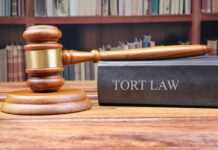This article is written by Monesh Mehndiratta, a law student at Graphic Era Hill University, Dehradun. The article explains the meaning of “natural rights” and provides examples of how they were incorporated into the US Constitution and the natural rights given to citizens therein.
It has been published by Rachit Garg.
Introduction
Before beginning, let’s play a game of questionnaires to better understand the purpose of this article. Take a few seconds and answer these questions.
Are you aware of what you can and cannot do in the US? If you are a citizen, do you know the rights that have been given to you by its Constitution? Can you hold property in the US? Are there any restrictions? Can you invade someone’s privacy? Are you infringing on any of the restrictions on your rights?
If you know the answers to all these questions, you are aware of all your rights and are exercising them in a correct manner. But if you are clueless, you need to know more about the natural rights that are given to a US citizen by the US Constitution.
Some of the rights guaranteed by the Bill of Rights in the US are man-made, while others are termed “natural rights.” The US Constitution guarantees numerous fundamental rights to its citizens, which are enumerated in the Bill of Rights, and the first ten amendments to the US Constitution list the fundamental rights that the Constitution grants to the citizens. These rights are enforceable by court order and cannot be modified or suspended except by an amendment to the Constitution. In this article, we’ll look at how the concept of natural rights relates to the US Constitution, as well as what natural rights are guaranteed to US citizens. Let us begin our journey!
Meaning of natural rights
The rights available to a person since their birth are known as “natural rights.” These are different from legal rights, as they are not dependent on any tradition, custom, law, or government. These are uniformly available to everyone, irrespective of caste, gender, race, creed, color, and age. This idea of natural rights emerged and originated with the origin of natural law. According to the theories of natural law, natural rights are granted by nature and are not subject to any authority or government.
The concept of human rights is a recent development, but natural rights have been in existence since the origin of the human race. For example, the right to life is one such right that cannot be snatched by anyone in this world. Every human being, after his/her birth, has the right to live. This right is available from the time a person is born. It can be said that natural rights are certain morals and principles that are universal and apply uniformly to all cultures and castes. These rights are inalienable by nature, which means that they cannot be taken by any authority, whether sovereign or government.
Types of natural rights
Natural rights can be classified into two categories:
- Inalienable rights
- Alienable rights
Inalienable rights
The rights that are not subject to any condition and cannot be taken by anyone are known as inalienable rights. These rights are available to any person from the moment he/she is born and cannot be alienated. The right to life, right to liberty, and the pursuit of happiness, according to John Locke, the first proponent of natural rights, are inalienable rights.
Right to life
The right to life is the first and most important right available to an individual since birth. After their birth, no person, authority, group, or government has the power to take away any person’s life. Every person has the right to live. This is why this right is one of the most fundamental rights. There can be various aspects of this right, like the right to live with dignity and the right to food, shelter, etc., which depend on the circumstances in different countries, but this right as a separate one is available to every person on this earth and is recognized by every country.
Right to liberty
Liberty, in its literal sense, means freedom or living a free life. Nobody can be detained within four walls without any significant reason. Every individual has the freedom to live their life on their own terms. However, they must not violate the rights and liberty of any other person. This right also includes various other kinds of freedom, like freedom of speech and expression, etc.
Pursuit of happiness
The pursuit of happiness is mentioned in the United States Declaration of Independence. It means that a person can enjoy life and exercise the rights granted to him/her without restraining others from exercising their rights. No one is allowed to do anything against the law. It is the ability of a person to know natural law and their unalienable right to live a harmonious life by applying the principles of natural law. According to John Locke, the pursuit of happiness is also considered the foundation of liberty because it frees a person from any kind of attachment and leads to satisfaction in life.
Alienable rights
The rights that can be transferred or alienated from one person to another are called alienable rights. Most property rights fall under the category of alienable rights, since property can be transferred from one person to another.
Right to property
Every person has the right to own property as long as they are alive. After the person’s death, the property has to be transferred either to his/her own child or to any other member of the family. Locke argued that every person has a right to exercise control over material things they own, like lands, houses, etc. This theory of property rights was proposed by John Locke in the Second Treatise of Government in 1690. According to him, the property is something that can be sold, given away, or even confiscated by the government under certain conditions and is not just mere goods and land.
Relationship between natural rights, natural law, and the US Constitution

Natural law and natural rights are closely connected to each other. Natural law is largely based on the idea that humans possess certain values such as morals and ethics that govern their behaviour and dealings with other fellow mates in society and help them live cheerful lives. These ethics help a person to decide whether his acts are morally right or wrong and generate moral conscience. On the other hand, natural rights are the rights that are enjoyed by a person from his birth. The moral conscience of a person helps him in exercising those rights peacefully without violating the rights of another person. For example, a person has the right to life, which has been available to him/her since his/her birth. No other person has the right to take his/her life, and they must ensure that their acts do not violate this particular right. They can be done only through their inherent morals and ethics. This further indicates that natural rights and natural law are mutually exclusive and cannot exist without each other.
The ideas of natural law and natural rights in America were neither indefinite nor expanded on until the 18th century. Americans believed that one could protect liberty or freedom only by ensuring that their acts or words did not harm the liberty of any other person. In order to protect himself, he must not hurt other people. Before adopting the Constitution, the people in the US decided to submit some of their liberties to the government in order to retain their natural rights. However, these rights are not absolute in nature, can be restricted and subject to the limits prescribed by the legislature in the Constitution. For example, every person has the freedom of speech and expression but it does not mean that they have the right to defame or abuse any person as such activities are illegal and punishable by law.
Rights under the US Constitution : inalienable or unalienable rights
The rights given in the US Constitution are termed “unalienable rights” in the Declaration of Independence rather than “inalienable rights.” The original draft of the Declaration written by Jefferson contained the word “inalienable,” but the copy written by John Adams had the word “unalienable.” Now, the question that might arise in the minds of most people is ‘whether the two words are synonymous or is there any difference between the two?’
After looking at the meaning of the two words, it can be said that both of them give a similar meaning i.e. something that cannot be transferred or taken away from a person. Thus, both of them have the same meaning and that is why the rights that can neither be transferred nor taken away from a person are known as “unalienable rights”.
History of natural rights in the US
The making of Constitution in the US has a glorious history. The country had a peculiar set-up and comprised 13 colonies, forming a federation. The US colonies i.e., Connecticut, Delaware, Georgia, Maryland, Massachusets etc, were joined together by the feeling of nationalism and love for civil liberty. They adhered to the free government and for this purpose, elected colonial assemblies which represented each colony. Apart from this the Philadelphia Convention and the Declaration of Independence played a significant role in creation of the US Constitution and it’s principles. This further led to the establishment of natural rights in the country.
The philosophy of natural rights and their presence in society was brought in light by the founding fathers of the US Constitution. Some of them are, Richard Bland, Patrick Henry, Thomas Jefferson James Madison, and many more. These philosophers further came together to adopt the Leedstown Resolutions, which asserted the fundamental rights of people. Later in 1774, the citizens of Fairfax County adopted the Fairfax County Resolve in a meeting which affirmed that natural rights are given by nature and the natural law. This was the first time that the people in America asserted that laws must be enacted to govern their affairs. As a result of which, various committees were formed to defend these rights for the citizens.
Another milestone in the history of natural rights is the Declaration of Rights which was adopted in 1776 during the Virginia Convention. The declaration stated that every person has certain inherent rights from the day he/she is born. These inherent rights are called natural rights. Further, the Virginia Statute on Religious Freedom recognized freedom to practice or profess any religion as part of natural rights enjoyed by citizens. This declaration is also considered as one the most important and significant steps towards the development of natural rights in the US and their incorporation in its Constitution.
Natural rights and the American Revolution
The idea of natural rights played an important and significant role in the American Revolution. The theory of natural rights rendered the movement on a large scale and is one of the reasons for the success of the revolution. During the revolution, people used these rights as a tool to demand their freedom and entitlements. For example, the strive and zeal of people to secure the right to property and other related rights led to the Glorious Revolution in 1688. This further resulted in the convention of Declaration of rights whose major parts were incorporated in the Constitution as the Bill of Rights.
The aim of the government was shifted to secure rights of citizens. The ultimate purpose of the government was then converted to secure rights for the citizens. The phrase by Jefferson used in the Declaration of Independence that “all men are equal” helped to unite people and instil a sense of collectivism among them. The notion of addressing the citizens of the US as “people of America,” also help in creating a feeling of brotherhood and togetherness among the masses. This further strengthened the fight against inequalities during the colonial rule of Britain.
Natural rights were used in the pre-revolutionary era to interpret the English Constitution and oppose it by instilling the feeling of independence in the masses. During colonial rule, Americans were nether represented in the parliament nor had any decision-making power. This necessitated their urge to have independence in order to enjoy freedom and conduct affairs of their country by themselves. A well-structured theoretical system was built by the citizens to counter English law and fight against their unrighteousness. Natural rights gad a big role of play. The founding fathers understood the importance of these rights and then as their weapons against the colonial rule. They employed the idea of freedom, liberty and natural rights in their speeches and writings in order to increase the pace of legitimation of independence in the country. It can be said that natural rights helped in shaping the political thoughts of people in America which led to their independence and later they became a part of their Constitution.
Natural rights under different documents in the US
Declaration of Independence
The Declaration of Independence is one of the most powerful documents in the world and continues to inspire people to raise their voices for their freedom and equality. Abraham Lincoln correctly noted it as “a rebuke and a stumbling block to tyranny and oppression.” The declaration was proclaimed on July 4, 1976. With this declaration, the history of independence started in the United States. The colonies became independent from the authority of the crown. Each state wanted to protect its own individuality, and the common purpose of securing liberties united them all.
The concept of natural rights played an important role in the US, as it was mentioned in the Declaration of Independence. The Declaration was primarily made by Thomas Jefferson, but the Continental Congress made some significant changes and asserted phrases like “all men are treated equally” and “endowed by the creator, some unalienable rights like the right of life, liberty, and the pursuit of happiness” and that “these are self-evident” in the Declaration. The word “unalienable” used to describe the rights in the declaration reveals the existence of natural rights in the country. The Declaration further criticized King George III and the Parliament for denying such rights to their citizens.
These words in the declaration grabbed the attention of delegates after the adoption of the US Constitution, and it was argued that those unalienable rights must be mentioned expressly in the constitution. The Declaration is not a legally binding document like the Constitution, but it formed the basis for change and ideas in the country.
Philadelphia Convention
The Constitution of the United States of America was adopted in this Convention, which was held in 1787 and came into force on March 4, 1789. The adoption of the US Constitution changed the character of states and established a federal government giving maximum autonomy to the states. Originally, it was a federation of 13 states, but currently, they are 51 in number.
Under Article 1 of the Constitution, the supremacy of the people in the country and their representation by their representatives are recognized. In the Convention, power was given to the Congress to look over important matters and work for the development of the country.
The words “blessing of liberty” in the Preamble of the Constitution indicate that the concept of natural rights existed in the country, but there was no Article in the Constitution that expressly mentioned those rights.
The Bill of Rights
The Declaration of Independence became the basis and foundation stone of the Bill of Rights, which contains a list of rights guaranteed to the citizens of the United States. The US Constitution, through its Bill of Rights, guarantees the fundamental rights of person, property, and liberty to its citizens. As mentioned above, these were not explicitly mentioned in the original draft, but people enjoyed certain unalienable rights before the creation of the constitution.
With the subsequent amendments, individual liberty has been effectively protected and mentioned in the Bill of Rights. These rights cannot be modified or suspended by any authority or government except by way of an amendment to the Constitution. Rights like freedom of speech, worship, religion, no unreasonable detention, etc. are now considered the hallmarks of a fair and just society. These amendments are legally binding as they form a part of the Constitution. It must be noted that not all the rights given to citizens in the US are natural, some of them are even man-made. All the rights are enumerated in the first ten amendments (the First Amendment to the Tenth Amendment) in the Constitution.
Rights guaranteed to US citizens under the Bill of Rights
The US Constitution guarantees its citizens certain rights that are listed and explained below:
- The First Amendment guarantees rights like the right to profess religion, freedom of speech and expression, freedom of the press and the right to peacefully gather or assemble. It further puts an obligation on the state not to make any law that restricts or creates hurdles for people to enjoy and exercise these rights.
- The Second Amendment imposes a duty on the military to provide security to the state and the citizens have a right to keep arms in order to protect themselves from any attack or harm.
- No soldier is allowed to enter the premises or house of any person forcefully without their permission or consent. In order to do so, they must adhere to the procedure prescribed by law. This is mentioned in the Third Amendment.
- The Fourth Amendment protects citizens against unreasonable search and seizure. If a building or house of a person has to be searched, it can be done if a warrant has been issued in this regard.
- The Fifth Amendment elaborates on the rights given to an accused. These are:
- In serious criminal offences, charges will be initiated by the grand jury. However, no such thing will be done in military cases.
- Protects accused against self-incrimination.
- No person will be vexed twice for the same offense, i.e., it prohibits double jeopardy.
- The courts must follow due process while awarding any punishment.
- Nobody will be deprived of their property without proper and fair compensation.
- According to the Sixth Amendment, the accused will be subject to a fair trial in a speedy or expeditious manner. The trial will be done in front of an impartial jury. They will be duly informed about the charges against them and provided services of legal aid. They are also allowed to bring witnesses in their favor.
- In civil cases, People in the US have a right to a jury trial This is mentioned under the the Seventh Amendment.
- The Eighth Amendment protects citizens from excessive bail and fines, unjust and unreasonable punishments.
- Further, the Ninth Amendment provides people in the US also have rights that are not mentioned in the Constitution apart from those that are expressly mentioned.
- According to the Tenth Amendment, the federal government is empowered to exercise only those powers mentioned in the Constitution. The other powers will be exercised either by the states or the people of the country. Natural rights under the First Amendment to the US Constitution.
Natural rights under the First Amendment to the US Constitution
The First Amendment to the US Constitution The First Amendment to the US Constitution guarantees its citizens various rights like the right to religion, freedom of speech and expression, freedom of the press, and the right to assemble peacefully along with certain liberties, like the liberty of speaking, expressing, writing and so on. However, there has been long debate over the issue of granting of liberties and freedom to the citizens before their incorporation into the Constitution. Some scholars and philosophers often regarded freedom of speaking, writing, and publishing as part of the right to liberty, while other scholars regarded freedom of the press as a part of freedom of speech and publication.
There was a need to consider limitations on such freedoms. This resulted in two queries: first, the scope of pre-political liberty, and second, the extent to which the people surrendered their liberty to the state. With respect to the first query, it was argued that liberty in the pre-political era was subject to natural law and meant that a person could exercise liberty to the extent that he was not hurting or stopping any other person from exercising his or her liberty. Though people gave up some of their liberties, those could be regulated in pursuit of the public good.
The constitution framed by the Philadelphia Convention did not have rights that were to be given to the citizens. There was a quick need to define the rights and freedoms of people rather than creating any new rights. Some people in this situation argued that people in the United States were exercising their natural rights before drafting the constitution as well, and thus, there is no need for a declaration of rights, while others stated that there must be a declaration that gives the meaning and extent of each right given to the citizens. This further led to the First Amendment, which guaranteed freedom of speech and expression, freedom of peaceful assembly, freedom of the press, and freedom of religion. In short, it gave liberties to people. However, people have to exercise their liberty in a way that does not ruin or harm the liberties of others.
Fundamental individual rights
The First Amendment of the US Constitution gives rights related to conscience, thoughts, and expression to its citizens with almost no exception. The rights are given to each individual separately and are hence considered fundamental rights. The right to profess a religion of their own choice means that people in the US are free to worship any god or deity and follow any religion. However, James Madison argued that this might determine eternal destinies.
Similarly, the right to freedom of speech, expression, and peaceful assembly gives people an open forum to discuss and express their thoughts and opinions about governmental activities and policies for the development of the country. These rights tend to develop people’s personalities by enhancing their participation as citizens.

Preferred Position Doctrine
The courts in the US have been given the power to enforce the rights mentioned in the Constitution. The rights given under the first amendment are considered natural and unalienable rights. This gave rise to the “Preferred Position Doctrine,” which means that these rights must be preferred over other rights because they are absolute in nature and have almost no restrictions.
According to this doctrine, constitutional rights must be arranged in a hierarchy in which the rights at the top are preferred over the other rights. The first order of the hierarchy of constitutional rights was seen in the case of Palko v. Connecticut (1937). In this case, it was held that out of the rights given in the constitution, only a few are given in ordered liberty and are called fundamental rights. Such rights are mentioned in the first amendment. The court, while dealing with one of these rights, must strictly scrutinize the restrictions and try to ignore their constitutionality. The idea that some of the rights are given a preferred position over others can be through the creation of fundamental rights, scrutinizing the restrictions over such rights, selective application of the Bill of Rights etc.
The courts in the USA have kept this doctrine alive in a number of instances. The Warren Court used this doctrine to expand civil rights and liberties. While the Burger Court did not expand the rights and liberties but accepted the preferred position doctrine. On the contrary, the Rehnquist Court kept economic issues above such rights and gave a preferred position only to property rights.
Conclusion
The political system in the United States is very old. The institutions evolved through the wisdom of the founding fathers of the Constitution and the nation. With the numerous colonies, it is currently a federation of 51 colonies consisting of people who speak different languages, has different cultures and traditions, etc. In such a situation, there was a need to grant them specific rights. The Bill of Rights is the legally binding document that contains those rights. These were incorporated into the US Constitution by way of amendments.
But with technological advancement, there has been an increase in the demand for certain rights like the right to privacy, security against cyber crimes, the right to the internet, the rights of the LGBTQ community, etc. It is necessary to mention these rights, or else they will not be recognized and people might tend to violate them. The most common right that is violated frequently is the right to privacy. People can easily breach and invade others’ privacy and then claim that it has not been guaranteed by the Constitution.
The natural rights granted by the US Constitution also contain liberties like freedom of speech and expression, peaceful assembly, freedom of the press, etc., but these liberties must have certain restrictions for the public good, and those should have been mentioned in the constitution. However, no such restriction has been mentioned, which makes them absolute and allows people in America to arbitrarily exercise these freedoms. Moreover, these natural rights, which were once core principles, are now subordinated in the name of development. Thus, revision and modification of such rights must be done regularly to avoid chaotic situations.
Frequently Asked Questions (FAQs)
Are all the rights provided under the US Constitution natural rights?
Not all the rights guaranteed in the US Constitution are natural rights. Some of them are also man-made rights. For example, the right to profess religion, the right to life, liberty, and freedoms, etc. are all natural rights, while the right against self-incrimination, double jeopardy, bearing arms, etc. are man-made rights.
Distinguish between natural rights and civil rights.
Natural rights are the basic rights that are available to an individual from the time of their birth. These are not enforced by law or custom. For example, the right to life, the right to liberty, and the right to own property is the main natural rights. While civil rights are those rights that are provided by society and enforced by law, For example, the right to vote, and the right to a fair trial, etc. are some examples of civil rights. Moreover, natural rights are universal and inalienable, while civil rights may differ from place to place.
What are the views of John Locke on natural rights?
John Locke was one of the first proponents of natural rights. He argued that people have certain natural rights, like the right to life, liberty, and property, and these cannot be violated by any person or by a sovereign itself. His theory of natural rights greatly influenced the Declaration of Independence in the United States, which helped in the establishment of natural rights in the country.
References
- https://www.crf-usa.org/foundations-of-our-constitution/natural-rights.html
- https://www.mtsu.edu/first-amendment/article/822/natural-rights
- https://scholarship.law.columbia.edu/cgi/viewcontent.cgi?article=1661&context=faculty_scholarship
- https://www.encyclopedia.com/politics/encyclopedias-almanacs-transcripts-and-maps/natural-rights-and-constitution
- Natural Rights And The Founding Fathers-The Virginians (wlu.edu)
- On the role of the Natural Rights Theory in the American Revolutionary Momentum – Logos Journal
- The Declaration of Independence: Unalienable / Inalienable (ushistory.org)
- Are our rights ‘inalienable’ or ‘unalienable’? – The Washington Post
- https://www.cato.org/commentary/american-understanding-natural-rights
Students of Lawsikho courses regularly produce writing assignments and work on practical exercises as a part of their coursework and develop themselves in real-life practical skills.
LawSikho has created a telegram group for exchanging legal knowledge, referrals, and various opportunities. You can click on this link and join:
Follow us on Instagram and subscribe to our YouTube channel for more amazing legal content.






